Shanghai Commercial Bank-HKUST Sustainable Campus Leadership Program
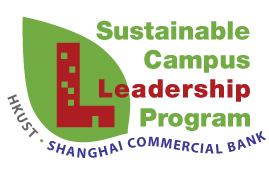
Sponsored by:

Students are passionate and have great ideas of building a sustainable campus. For the past five years, the Sustainability Unit has been selecting 20 passionate and committed HKUST students every year to become the Eco-Reps.
Based on their interest and skills, Eco-Reps teams design and organize their own green campus projects. Through meeting faculty and senior university administrators, the Eco-Reps can build leadership skills, gain project management experience, and enhance their critical thinking and problem-solving abilities.
Highlights of Projects
Stamping out Bottled Water- Tap It Forward Campaign (2016)
Eliminating the sale and consumption of disposable bottled water on campus is one of our top priorities to reduce unnecessary one-time use disposables. This eco-rep team was interested in engaging the community members to support this initiative. They conducted focus group studies with students and staff to learn about their habit of drinking water on campus, arranged blind water taste test with local and international students to demonstrate that filtered water tastes as good as those from plastic bottle. The group then designed and organized a 2-day education and outreach campaign in the Atrium in April. Well-designed stainless steel water bottles were given out in exchange for pledges of action to encourage students’ usage of reusable bottles instead of buying bottled water. Through small quizzes, students learned more about the current plastic problem around the world and in HKUST.
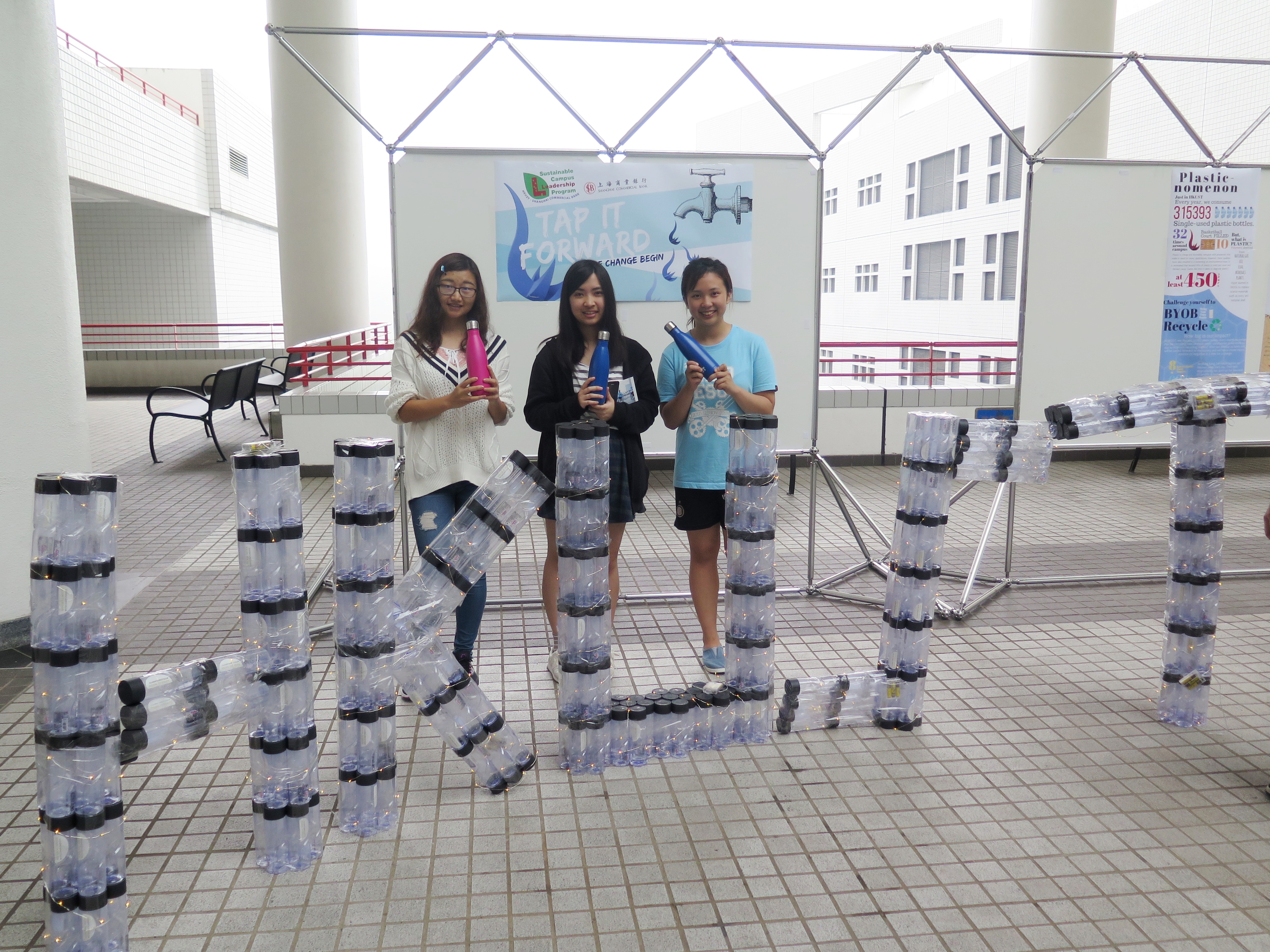
Drip Irrigation and Grey Water Feasibility studies (2016)
This Eco-Rep group developed their interest in studying the quality and quantity of water usage in horticulture. On one hand, they conducted feasibility study of installing drip irrigation system on campus, a technology that can reduce horticulture water usage by at least 50%, by identifying suitable pilot spots, contacting equipment contractors, and communicating with FMO. In addition, the group was interested in learning whether used water from laundry machines could be used effectively for watering plants. To test the idea, they measured the growing effect of grey water on both indoor and outdoor plants and concluded that grey water had no obvious or deleterious impacts on plants’ growth. One of the Eco Reps Bobo recalled, “The experiment was fun and rewarding! It was a great experience to reach out different stakeholders from inside and outside UST.”
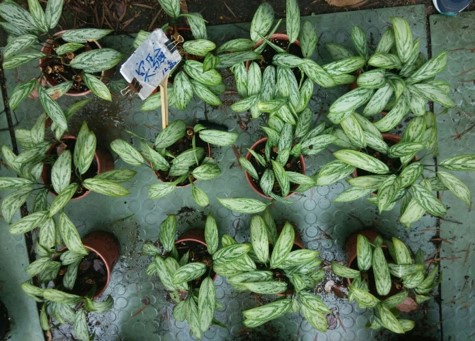
Develop Vibrant Spaces @HKUST (2014, 2015)
In 2014, a group of Eco-Reps focused on redesigning an underutilized space in HKUST. They identified the open concourse area behind Engineering Commons. After conducting a series of mass surveys to students and staff, stakeholder engagements and attended a design-thinking workshop to develop their prototype, the group came up with several ideas to redesign this space to make it a relaxing zone. With the support of Facilities Management Office, the space is now become lively with two garden swings, a big board to write and express thoughts, lounge chairs to chill, and outdoor tables with chairs for those who want to stay in nature to be inspired for their work. A student, Ruoxiang Hu from the School of Engineering discovered this place for the first time as he just walked pass before taking his exam. He found this space a really nice and relaxing spot to take a break.
Another group of eco-reps were interested in redesigning an open space behind the Chinese restaurant in the small patio facing the sea. They conducted several focus group studies and mass surveys to understand the needs of our campus community. Then they took the findings and worked with a landscape architect to come up with a few options of space design for further consultation with UST members. The final proposal and design were presented to the FMO and university management for future development consideration. One of the eco-reps Varna Kanungo shared, “Being able to contribute towards sustainability and give back to the HKUST community was not only an incredible opportunity, but also a great learning experience.”
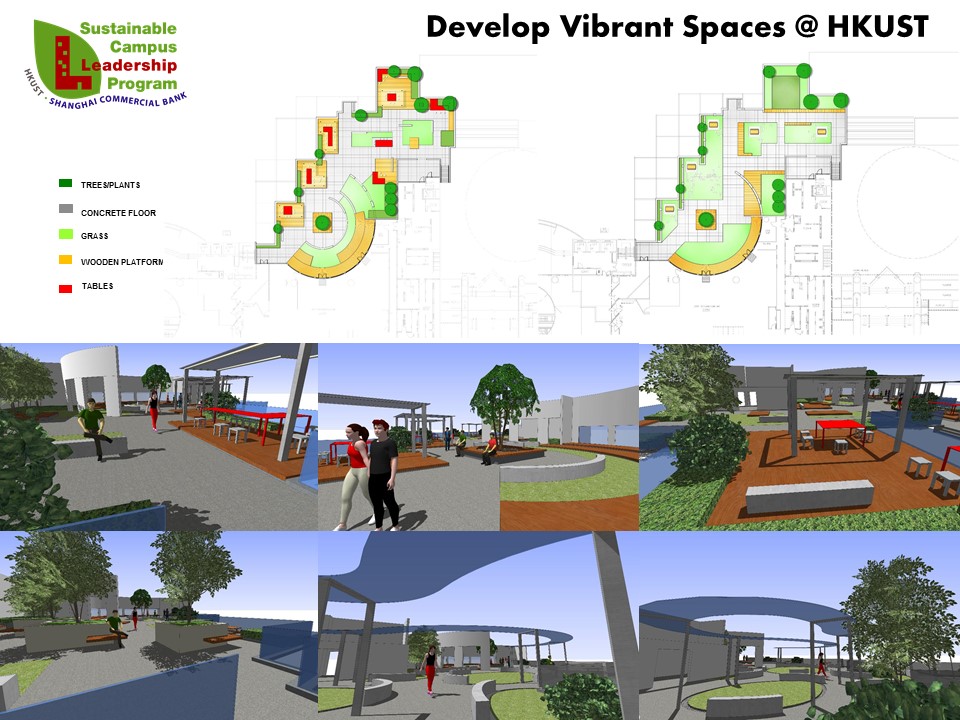
Rainwater harvesting feasibility study (2015)
This group spent the whole year in understanding different rainwater harvesting systems in the market, at other universities, and in our own campus groundwater tank, irrigation and toilet flushing systems. By engaging with FMO and an Engineering consultant, the group consolidated a feasibility study for University consideration. They suggested building a rainwater harvesting system with water treatment process on the rooftop in academic building that connects to seawater tank for toilet flushing. The system can make use of free water, reduce pumping energy costs and maintenance needs due to corrosion. Veronica Li, a member of the group, recalled, “Through our efforts, we hope to share what we have learned about sustainability with the HKUST community, and to bring a permanent, positive change to the way we use water on campus.”
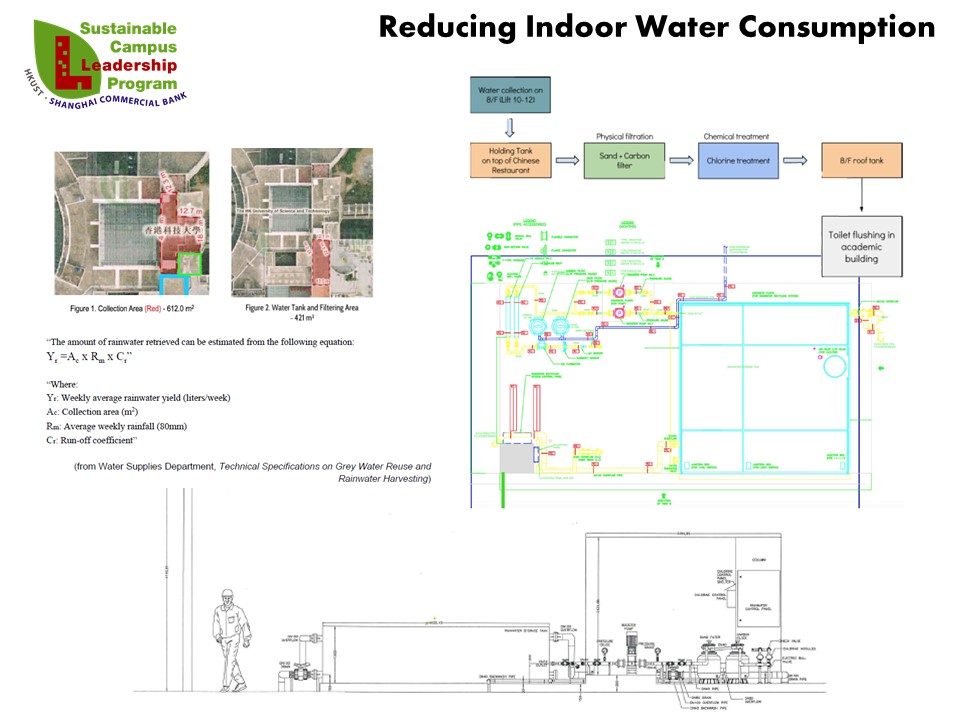
Launching Food Waste Recycling Program in Junior Staff Quarter (2016)
Food waste is a significant source of domestic waste in Hong Kong. Despite the food waste recycling scheme in UST canteens, a group of Eco-Reps decided to expand the scheme to the Junior Staff Quarters. In order to design a comprehensive scheme, they first conducted food waste audit to identify the source of food waste, then collected opinions from residents and understood their needs and concerns. With the collaboration with FMO housing, Campus Services Office and the food waste collecting contractor, the group successfully established the piloting scheme in March and April. Beyond recycling organic resources, they also engaged the UST community and the paved way to build a greener campus.

Introduction and FAQ